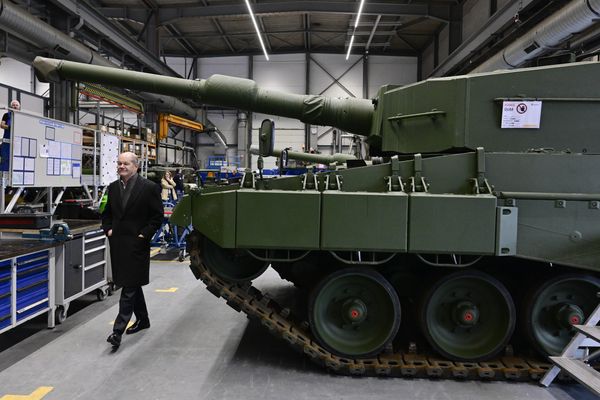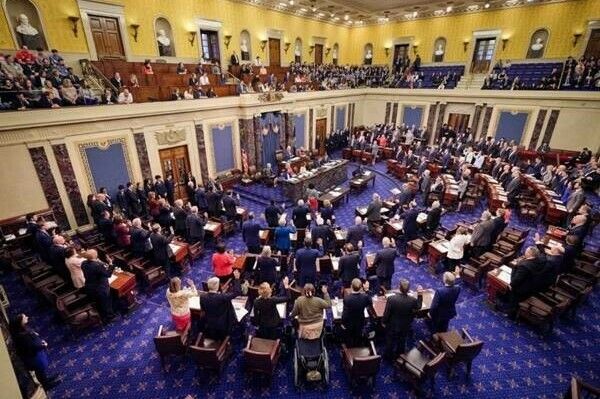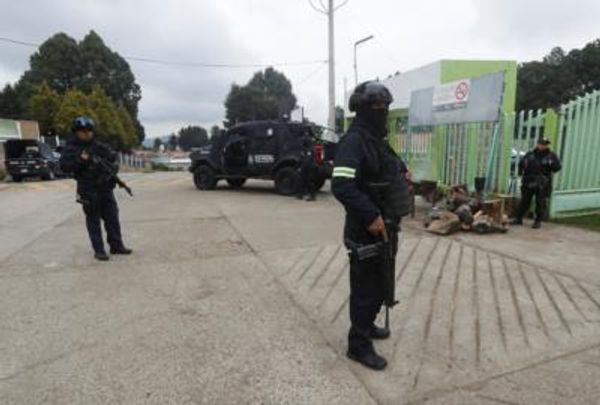
RAS LAFFAN INDUSTRIAL CITY, Qatar — Over the past quarter-century, the tiny Persian Gulf state of Qatar has dispatched increasing amounts of natural gas to a growing list of customers, amassing profound wealth and acquiring a geopolitical importance it would otherwise lack.
Now, in part because of the war in Ukraine, Qatar’s clout is set to grow even more.
As the United States and its European allies seek to deprive Russia of its oil and gas income, the West has looked to Qatar as an alternative source of fuel to warm European homes, cook food and generate electricity. And although Qatar cannot immediately ship much extra gas to Europe because most of its production is under contract to go elsewhere, it is investing tens of billions of dollars to increase production by about two-thirds by 2027.
About half of that gas could go to Europe, Saad Al-Kaabi, Qatar’s minister of state for energy affairs and the head of the state-owned QatarEnergy petroleum company, said in an interview.
“The stars are all aligned for Qatar to become a very significant LNG exporter to Europe,” said Cinzia Bianco, a Gulf research fellow at the European Council on Foreign Relations, referring to liquefied natural gas, a shippable form of the commodity.
The uptick in interest in Qatar’s gas is a sharp turnaround for a country that in recent years got used to Western leaders bashing fossil fuels for their contribution to climate change.
Now, those leaders are scrambling for gas.
Countries that were saying, “‘We don’t need oil and gas companies, and these guys are demonized, bad guys,’” Al-Kaabi said, are now saying, “‘Help us, produce more, you are not producing enough,’ and so on.”
That shift was driven by President Vladimir Putin of Russia’s decision to invade Ukraine in February. Suddenly, European countries, which received nearly half of their gas imports from Russia last year, were scrambling to find other fuel sources in order to defund Putin’s war machine.
That has given Qatar, which vies with the United States and Australia for the spot of the world’s top LNG exporter, a bump in popularity.
In January, as fears rose of a Russian invasion, President Joe Biden declared Qatar a “major non-NATO ally” and hosted Sheikh Tamim bin Hamad al-Thani, Qatar’s emir, at the White House, the first Gulf head of state given such a welcome by Biden. Energy issues were high on the agenda.
After the war began, Prime Minister Boris Johnson of Britain called Sheikh Tamim to discuss “ensuring sustainable gas supplies” and other issues, and senior European leaders flew to Qatar to discuss energy, including Josep Borrell Fontelles, the European Union’s top diplomat. So did Robert Habeck, Germany’s minister for the economy and climate change, to sound out a gas deal with Qatar.
But Qatar’s ability to ease Europe’s gas woes in the near term are limited. About 85% of its current production is locked in to long-term agreements, mostly in Asia, Al-Kaabi said.
“These hard-wired contracts I can’t do anything with,” he said. “Sanctity of contracts and our reputation is paramount, so I can’t go to a customer and say, ‘Sorry, I need to help Europeans.’”
But in the coming years, Qatar’s investments in LNG are likely to combine with the energy upheaval caused by the war in Ukraine to bind the tiny desert state more closely to Europe, and win plaudits from Washington along the way, analysts said.

Years before the war began, Qatar started a project with an estimated cost of $45 billion to build two new gas plants and increase annual output capacity by 64%, Al-Kaabi said. That gas will start entering the market in 2026 and will most likely be split between buyers in Europe and Asia.
In the meantime, Qatar has invested in terminals to receive LNG in Belgium, Britain and France.
Germany, Europe’s largest economy, had no LNG facilities before the war but has allocated more than $3 billion to acquire four floating terminals. France and Italy are exploring similar options.
That natural gas would make Qatar, a wind-swept peninsula in the Persian Gulf about the size of Delaware, one of the world’s richest countries per capita was not always obvious.
When it discovered natural gas in its territorial waters in the early 1970s, officials were disappointed it was not oil, which was transforming the economies of nearby Saudi Arabia and Kuwait, said David Roberts, an associate professor of international relations at King’s College London.
“For the first 20 years, no one wanted it because no one envisioned a market for it,” Roberts said.
So they mostly left it in the ground.
Then technological advances provided an opening. In the 1990s, Qatar and international partners poured billions of dollars into creating a LNG industry.
Previously, natural gas was transported by pipeline, limiting how far away it could be sold. But when it was cooled to 260 degrees below zero Fahrenheit, the gas liquefied and shrank in volume, meaning large quantities could be transported around the globe on ships and converted back into gas at the destination.
LNG was seen as a costly, risky bet at the time, but the market for the new fuel, which releases fewer emissions than other fossil fuels, grew, and Qatar hit it big.
“You see Qatari dominance in the market just going up and up and up,” Roberts said, “and they built the best and cheapest LNG operation going.”
That sent cash gushing into Qatar’s economy, giving its 2.5 million people, only 300,000 of whom are citizens, one of the highest per capita incomes in the world.
The capital, Doha, boomed, sprouting crops of steel and glass skyscrapers and an array of luxury hotels and shopping malls.
The country’s sovereign wealth fund swelled, snapping up stakes in major companies and key properties in London, New York and other global cities.
This year, Qatar will host the soccer World Cup, allowing it to show itself off to an expected 1.5 million soccer fans from around the world.

Qatar has used its wealth to play an outsize role in regional politics. It bankrolls Al Jazeera, the Arab satellite network, which has criticized Qatar’s rivals and cheered on protest movements and rebel groups across the region during the Arab Spring uprisings of 2011.
It maintains diplomatic relations with groups and countries that hate one another, allowing it to work as a mediator.
In addition to numerous Western energy companies, Qatar hosts the largest U.S. military base in the Middle East but also maintains close ties with Iran, with whom it shares its offshore gas field.
Last week, Sheikh Tamim met with Iranian officials in Tehran to push forward negotiations about reviving the international agreement on Iran’s nuclear program, a priority for the Biden administration.
Qatar hosts top officials from Hamas, the Palestinian militant group, and the Taliban. Last year, it won praise from the Biden administration for helping with the U.S. withdrawal from Afghanistan by welcoming Americans and American partners exiting Afghanistan.
“The Qataris have gotten way more influence than anybody would have imagined,” said Jim Krane, who researches energy politics at Rice University’s Baker Institute for Public Policy. “They have parlayed natural gas into all sorts of soft power.”
How Qatar will wield its clout in the future is an open question, but for the moment, it is basking in the international attention earned by its gas.
During a visit to Ras Laffan Industrial City in the country’s northeast, QatarEnergy officials proudly pointed out the two plants that had been processing gas for sale since the 1990s and described future expansion plans. On vast plots of empty sand there would be two new plants, they said, and a petrochemical factory.
Inside the port, six huge gas tanker ships were docked to load LNG. Many more were waiting out at sea for their turn, said Mohammed Al-Mohannadi, a cargo administration supervisor at the port.
“All the magic happens here,” he said.
Al-Kaabi, too, was clearly pleased that gas is back in fashion.
For years before the war in Ukraine, he said, he had been in talks with major German companies about building terminals to receive LNG in Germany, but the German government had not provided the necessary approvals.
After the war started, however, Germany’s energy minister flew into Doha with the companies’ chief executives and said the government would push the projects forward.
“The government now has changed 180 degrees,” Al-Kaabi said.
If Germany was ready to approve the projects, he recalled telling the minister, “we are ready to tango.”
View original article on nytimes.com
© 2022 THE NEW YORK TIMES COMPANY







